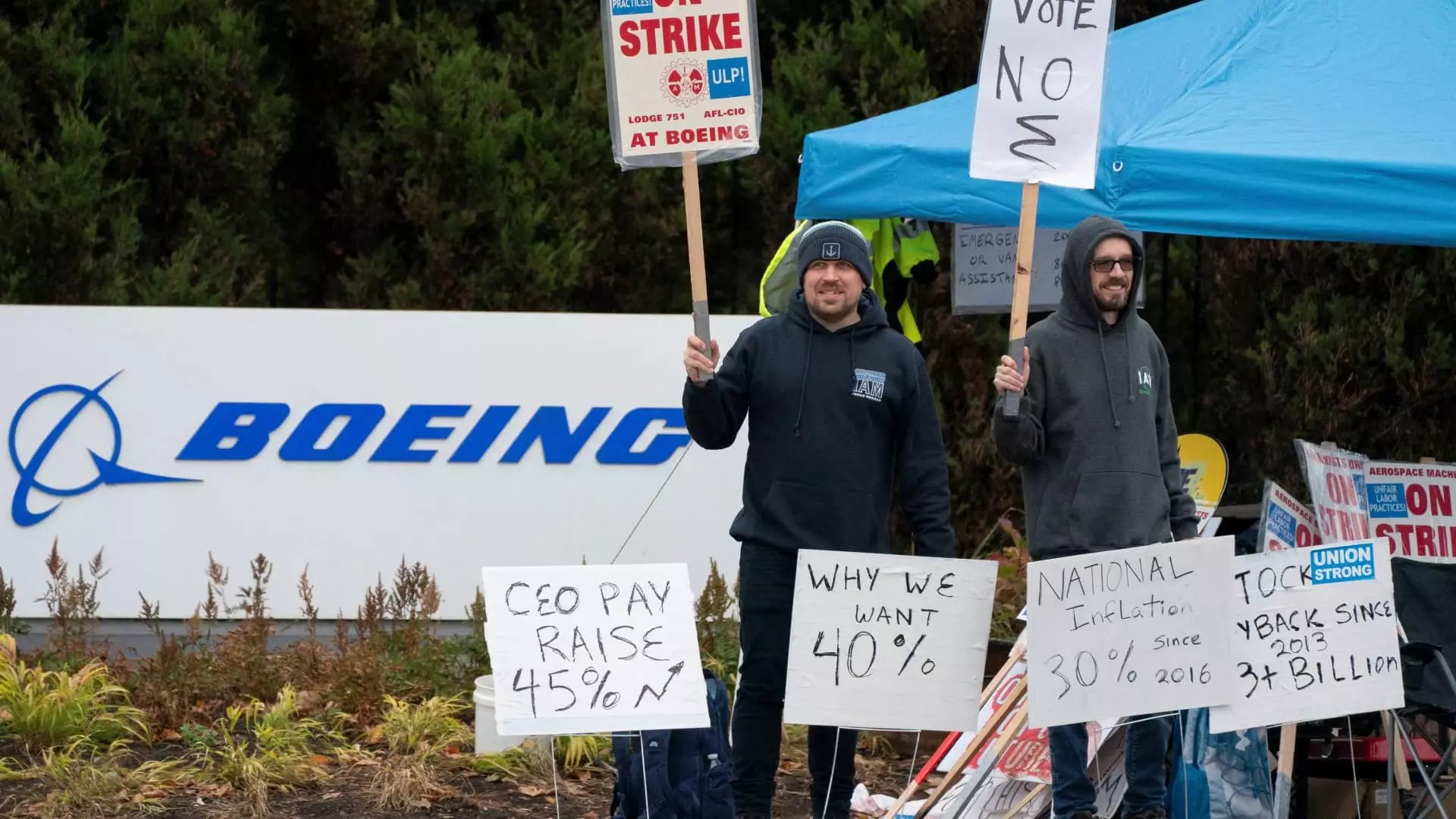In the backdrop of a tumultuous industrial landscape, Boeing, a frontline player in the aerospace industry, is grappling with significant challenges related to labor relations. Recently, the company has put forth a new contract proposal aimed at addressing the demands of its machinists’ union, which has been pivotal in escalating the complexities surrounding the ongoing strike. After enduring a seven-week standstill following missed agreements, the negotiation for a new contract has reached a critical juncture with union members poised to vote on the proposal. This article explores the implications of the new offer, the urgency of the situation, and the broader context affecting both the company and its workforce.
The latest contract proposal on the table promises substantial wage increases for Boeing’s workforce, specifically a cumulative 38% hike over four years, which represents an improvement from an earlier offer of 35%. The union claims that this offer could potentially result in total pay rises approaching 44%, making it an attractive proposition for the nearly 32,000 machinists predominantly based in the Seattle region. Additionally, the proposal introduces options for workers, allowing them to choose between a $12,000 one-time bonus or a combination of lower immediate cash and a larger retirement contribution. These modifications signal the union’s acknowledgment of the current labor market dynamics, intensified by rising living costs in the area due to competition from technology giants such as Microsoft and Amazon.
Boeing finds itself in a precarious position as each week of the strike translates into mounting financial losses, which surged past $6 billion in the last quarter alone. The economic implications of this prolonged labor disruption extend beyond the company to affect broader employment statistics, as showcased by recent U.S. jobs reports. With the strike already influencing job numbers and growth projections, it is imperative for both the company and the union to reach a resolution promptly. CEO Kelly Ortberg has emphasized the need for collaboration, arguing that it is essential to rebuild operations and reaffirm the company’s commitment to producing top-quality airplanes to meet global demands.
The Role of Government and Political Implications
During the strike, the Biden administration has stepped into the fray, demonstrating its interest in facilitating productive negotiations between Boeing and its workers’ union. The involvement of Labor Secretary Julie Su has been particularly noteworthy and reflects a growing recognition of the strike’s broader economic consequences, especially in light of the approaching presidential election. President Biden’s recent comments commending the union’s sacrifices indicate the political weight of labor relations in the current economic landscape. His support for the new contract proposal encapsulates not just economic considerations but also a political strategy aimed at solidifying worker support amidst rising tensions in labor negotiations across various sectors.
The issues surrounding this strike are emblematic of a wider narrative affecting labor across industries, wherein workers are increasingly demanding fair compensation and accountability from large corporations. Boeing’s previous decisions—such as relocating 787 Dreamliner production to non-union facilities in South Carolina—have created rifts within the workforce, exacerbating feelings of disenchantment. This situation illustrates the delicate balance that corporations must maintain between cost-saving measures and achieving employee satisfaction.
Successful resolution of the ongoing dispute will not only determine the immediate economic viability of Boeing but also shape its strategic direction as it works to recover from previous production failures and safety-related scandals. The aviation giant’s ability to adapt and respond to the needs of its workforce will ultimately play a crucial role in its long-term stabilization and success in a highly competitive global marketplace.
The machinations of this strike serve as a critical reminder of the interconnectedness between labor relations, economic health, and the political landscape. Both Boeing and its machinists find themselves at a crossroads where collaborative negotiation could pave the way for renewed growth and solidarity in the aerospace industry.


Leave a Reply